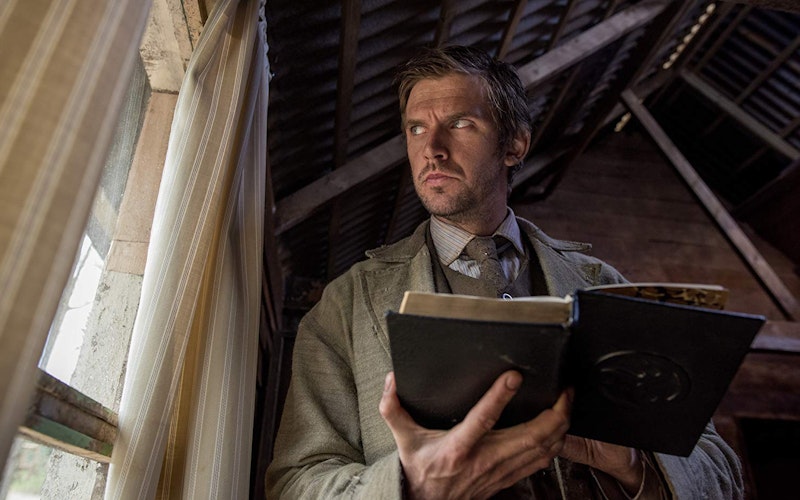
Movies
In Apostle, You Are What You Worship
Gareth Evans’ slow-burn, fantastical horror film Apostle opens with a letter to protagonist Thomas Richardson (Dan Stevens), informing him that his younger sister has been kidnapped by a cult-like religious group living on an island off the coast of Wales. Pretending to be a convert, Thomas sneaks onto the island and encounters the prophet Malcolm (Michael Sheen), who preaches a gospel of religious and political freedom. But the twisted secrets of this turn-of-the-century utopian life are slowly revealed over the course of the film—first in the nightly ritual of bloodletting, then in Thomas’ discovery of Her, the cult’s island goddess, who is nourished by consuming blood. Apostle is truly a grim fairy tale.
As the story patiently unfolds, Apostle slowly drills the theme of idolatry into our heads: how we create gods in our own images and ultimately become like what we worship. In this, it reminds me of James K.A. Smith’s Cultural Liturgies series, where he draws correlations between our worship and our worldview (or social imagination), between our desires and our identities. “Before we articulate a worldview, we worship,” says Smith in Desiring the Kingdom. He shifts our understanding of human beings from Descartes’ “I think, therefore I am” to “I love, therefore I am.” For Smith, practices and experiences shape and form persons, whether for good or ill: “You are what you love.”
What do the characters in Apostle desire and love? It turns out that when individuals’ desires and worship begin to compete, violence ensues. Malcolm desires power and freedom, autonomy from others telling him what to do. He is using the goddess as a tool for his own gain. But there are others on the island. The demonic Quinn (Mark Lewis Jones) becomes obsessed with the goddess herself, his desires twisted and distorted into a depraved state, making him willing to sacrifice anything—including his own daughter—to feed and sustain the goddess. And what about the goddess? What does she want? Enslaved by Quinn and used by Malcolm, she only wants freedom from bondage, even if it means her death. But Malcolm, Quinn, and the goddess can’t all have what they want. Absent of worshiping God alone, these twisted desires lead to the destruction of all. Distorted worship ultimately becomes monstrous.
It turns out that when individuals’ desires and worship begin to compete, violence ensues.
So what does Thomas, our protagonist, desire? Perhaps a chance at redemption, a way to find meaning beyond the violence he’s already experienced. He’s the titular apostle, a former Christian missionary to China who was tortured during the Boxer Rebellion, an experience which prompted him to lose his faith. “God is pain, suffering, and betrayal,” Thomas spouts bitterly to Andrea (Lucy Boynton), Malcolm’s daughter and Thomas’ friend on the island. “God is forgiveness,” she replies. But her response comes across as unconvincing in the world of Apostle, a gruesome realm of deception and power-mongering.
The cynical Thomas fits well in this violent world. Apostle reminds us that even as God is full of grace, acceptance of such grace requires the casting aside of idols, putting our faith in Christ as the ultimate source and final purpose of our greatest desires. To riff on the Westminster Catechism in the vein of Smith’s “cultural liturgies,” humanity’s chief end is to love God and to enjoy him forever.
Topics: Movies